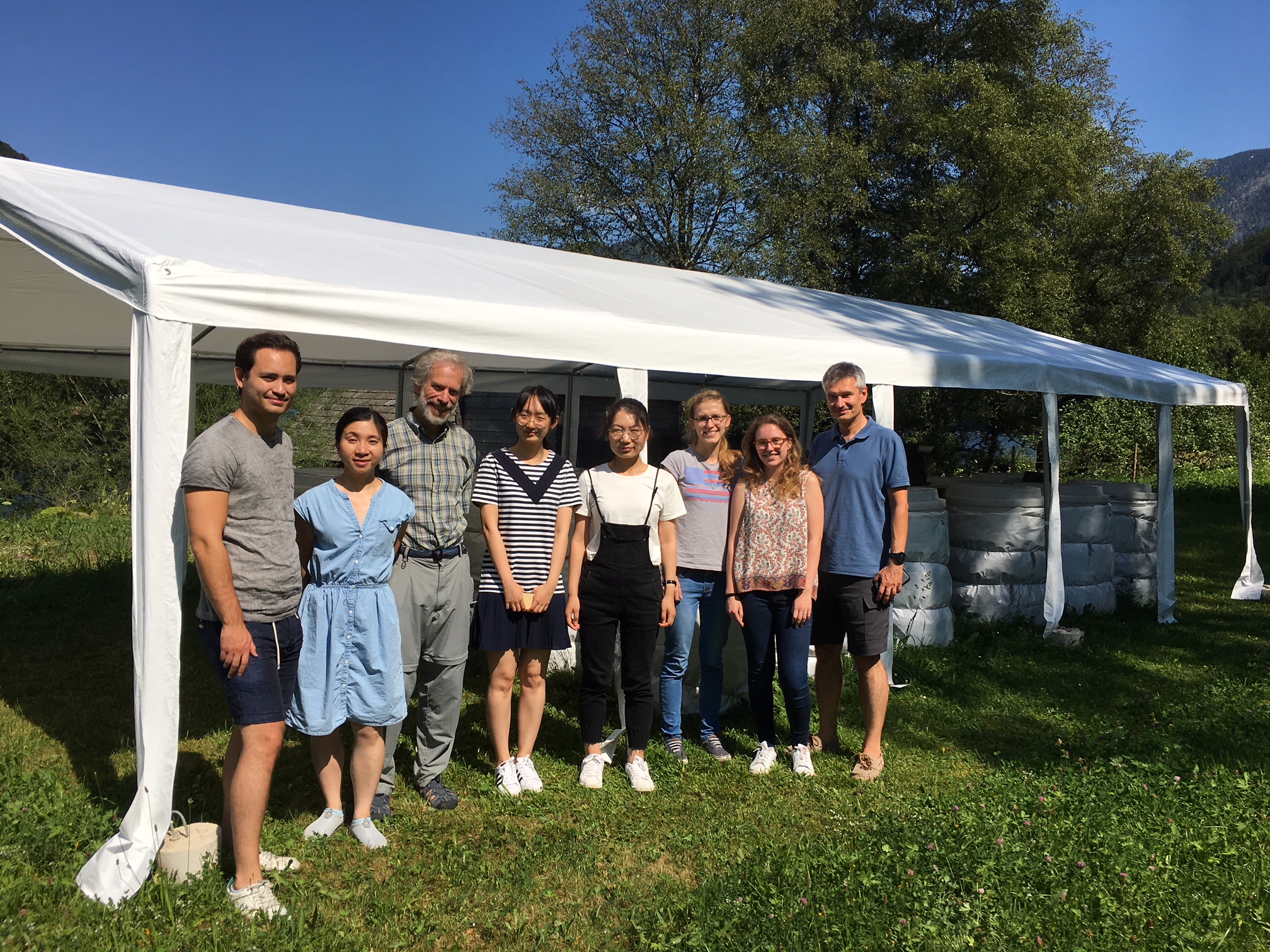A study conducted at WasserCluster Lunz investigated how climate change affects mercury pollution and essential nutrient synthesis in algae. The results, published in the journal "Nature - Scientific Reports", show that rising temperatures and increasing inputs of soil material led to an increase in the neurotoxic methylmercury in plankton (food for fish). At the same time, however, this led to a reduction in important nutrients in the algae, such as omega-3 fatty acids.
An increase in water temperature and in soil material being washed into the water due to more heavy rainfall are predicted climate change scenarios. Currently, a significant increase in the amount of terrestrially derived dissolved organic matter (tDOM) has already occurred - which results in browning of water bodies. Warming and browning of aquatic ecosystems has significant impacts on both ecosystem function and the food quality of aquatic resources.
Priv.-Doz. Martin Kainz headed the investigations at the WasserCluster Lunz to determine the effects of climate change on environmental pollutants and food components. Scientists analyzed how essential nutrients, such as polyunsaturated fatty acids (PUFA), and potentially toxic pollutants, such as methylmercury (MeHg), change with increasing temperatures and browning.
Overall, the amount of toxic methylmercury in the plankton increased. The provision of essential nutrients, such as omega-3 fatty acids, which are essential for the formation of neuronal tissues such as the brain and eyes, is limited. The tanned water as well as water exposed to elevated temperature had the highest MeHg as well as dissolved organic carbon (DOC) levels. While the levels of MeHg were 65-70 percent higher compared to the control group, omega-3 and omega-6 fatty acids decreased by nearly 50 percent. The results were published in the scientific journal Nature - Scientific Reports.
Climate change is affecting fish growth
"The fish's survival is also dependent on the essential nutrients as well as the concentration of contaminants at the base of the food web. The results show that the overall food quality at the base of aquatic food webs is deteriorating as climate change progresses," Pianpian Wu, post-doctoral student at WasserCluster Lunz explained. Swedish University of Agricultural Sciences in Uppsala is funding the research, which is being carried out as part of a mesocosm experiment in the LIPTOX working group at WasserCluster Lunz.
"The raised levels of methylmercury are of particular concern. Methylmercury is toxic to humans and animals. Since the organism cannot excrete it easily, the substance accumulates in the body. Excessive concentrations can damage the central nervous system," Martin Kainz, who led the experiment, explained.
Experimental setup
A total of 24 polyethylene containers (400 liters each) served as experimental chambers (mesocosms) for the experiment. In six containers, the temperature and light conditions of the environment were simulated (controls; C-treatment). In the second series of experiments, the temperature was increased by 3°C above the ambient temperature.
For the third series of experiments, a weekly browning treatment was applied with an extracted tDOM solution to increase the DOC concentration twofold. This is consistent with a possible future scenario of episodic/seasonal foods with increased inputs of organic compounds to lakes.
The final series of experiments combined the treatments. This is because the effects of browning and the simultaneous effect of increasing temperatures on MeHg and PUFA at the base of the food web have not yet been studied.

